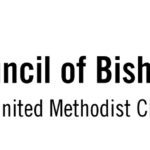By Paul Maryniak, Tribune Executive Editor
Had it not been for Mississippi’s virulent racism in the early 1960s, the Rev. Jack Troutman probably would never have made Mesa his home.
But Troutman and 27 other white United Methodist pastors found themselves in the bull’s eye of the Ku Klux Klan simply because they signed a statement in 1962 that declared blacks would be welcome in their churches.
On Saturday, Troutman, 90, will be honored by congregants at Grace United Methodist Church – the church he founded at the intersection of Gilbert Road and University Drive in Mesa after he fled the hostile reaction triggered by the pastors’ declaration.
The declaration, titled “Born of Conviction,” is detailed in a book of the same title that was written by a Methodist minister and published last year.
“I never thought it would be like that. It stirred Mississippi up like you wouldn’t believe. I didn’t think it was going to amount to anything but it caused 20 of us to leave Mississippi,” Troutman said. “They didn’t want us anymore. They didn’t want us to serve the people anymore.”
Asked who “they” was, he replied, “Hardline segregationists.”
“We came out of the seminary brainwashed into thinking all men are created equal,” Troutman said sarcastically. “We signed a statement saying we believed everybody ought to be welcomed in church. Well, a lot of white people didn’t want black people worshipping with them.”
Among those segregationists were Troutman’s brother and sister, both of whom pulled their children out of public school when a federal court ordered Mississippi to desegregate its all-white public schools despite stiff opposition from then-Gov. Ross Barnett.
Barnett, who futilely defied a National Guard unit when he tried to block a black man from entering the University of Mississippi, once declared, “The Good Lord was the original segregationist. He put the black man in Africa” and that Mississippi had the largest percentage of black Americans because “they love our way of life here, and that way is segregation.”
Barnett also was a cousin of Troutman’s mother, who became angry with her son when he refused an invitation to deliver a sermon at an annual family reunion held in the governor’s mansion.
“I told her mother I can’t go. He’s out there in public treating those black people like they were mules and cows,” Troutman recalled, adding that even his mother bore some of harsh reaction to the pastors’ declaration.
“It was pretty tough on my mama,” he said. “She got a lot of calls asking, ‘What’s wrong with Jack? Has he gone crazy?’”
The reaction was tougher on some of the 28 ministers.
“The Ku Klux Klan burned crosses on our lawns, slashed the tires of a neighboring pastor’s car, threatened to burn the churches of those pastors who signed the statement,” he said, adding that white congregants in many of those pastors’ churches “left in droves and never came back.”
Troutman was a circuit pastor, presiding over three rural churches in the middle of Mississippi. Each congregation ranged in size between 60 and 100 people.
That circuit put him on the fringes of more populated Methodist churches where pastors who signed the declaration were in physical danger.
Nevertheless, he said, he feared constantly for the safety of his two young children because of the Klan.
And he had to put up with the animosity of the white non-church members where he lived.
On the first Sunday after newspapers in Mississippi published the pastors’ declaration, Troutman said, “I got into the pulpit and told my members, ‘You probably read the article I signed, and it’s an article I would expect any of you to sign.”
“I had my people conditioned,” he added. “They knew where I stood before I signed that document. So, the only reaction they had was, ‘We don’t agree with you but we love you and we’re going to stay with you.’”
It wasn’t the same with the non-church members.
“I was sort of ostracized as far as the community was concerned,” he said.
And the reaction from the church hierarchy was even more dispiriting.
The presiding Methodist bishop and district superintendents “wouldn’t stand with us,” Troutman said. “They didn’t back us up.”
That was the last straw for 20 of the 28 pastors.
They began looking for approval from their bishop to be transferred to churches outside the state. The eight who remained “were like chaplains for institutions like hospitals and military bases, where I’m sure they had black members already.”
Many of those pastors fled to the Methodist district covering Southern California and Arizona.
But word of their declaration didn’t sit too well with some churches there, either.
“They wrote on the wall of one church our names and said, ‘These pastors will never serve here,’” Troutman said.
Despite the pleas of his bishop, Troutman insisted on being transferred out of his native Mississippi and was told, “I’ve got a nice five-acre piece of land in Mesa where I want you to start a church.”
He left Mississippi the day that a search began for three civil rights workers who eventually were found shot to death. Their murders became the subject of a best-selling book and film called “Mississippi Burning.”
Troutman said when he arrived in Mesa in 1964, “I saw I had five acres of tumbleweeds.”
He started his congregation, meeting in a funeral home on Stapley Road in Mesa while he and his followers raised money to build a church.
Grace Methodist grew rapidly to 1,000 members and Troutman led the congregation in erecting three buildings on the campus before he was transferred to Anaheim, California, nine years after he arrived. After a couple years, he went back to Arizona and presided over First United Methodist Church in downtown Mesa for six years before being transferred to Sun City.
He retired in 1991 and spent his time for nearly a decade traveling the country with his late wife and volunteering for the Red Cross.
Now living at an assisted living facility not far from the Mesa church he founded, Troutman said he last visited Mississippi for a reunion of the “Born of Conviction” pastors.
“The bishop invited the pastors about nine years ago,” he said, “but many had died. There are only a few of us left.”
Source:
Originally published on March 24, 2017
Maryniak, P. (2018). Pastor fled segregationist South, started church in Mesa. Retrieved April 12, 2017,
http://www.eastvalleytribune.com/life/faith_spirituality/pastor-fled-segregationist-south-started-church-in-mesa/article_826e81e2-0dbe-11e7-a71e-cfa2080f3e28.html
Find out more about Grace UMC, 2024 E University Drive, Mesa, Arizona at http://www.graceumcmesa.com and
“Embracing every person as a disciple in the body of Christ.”




